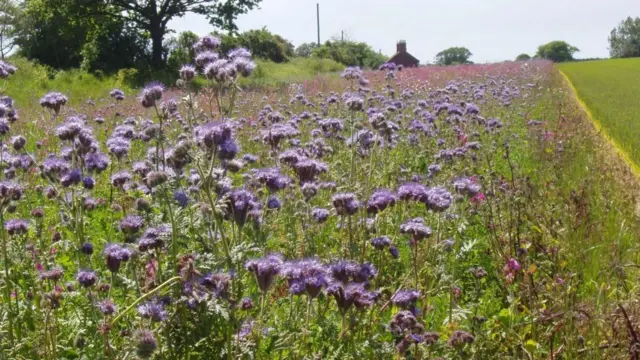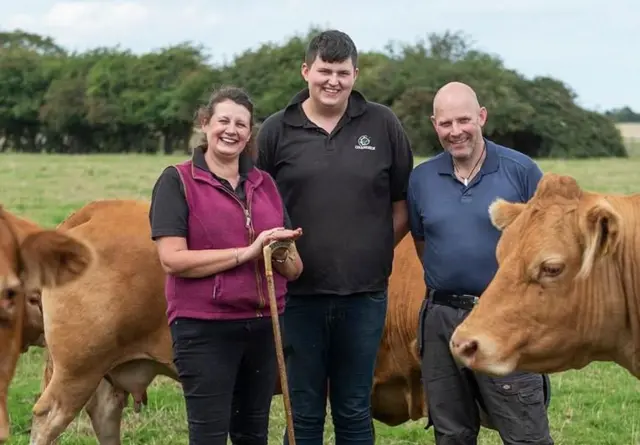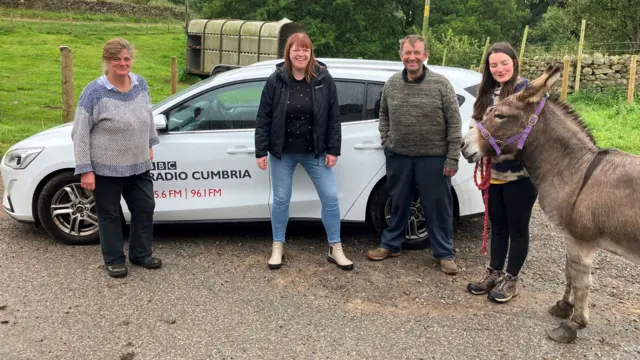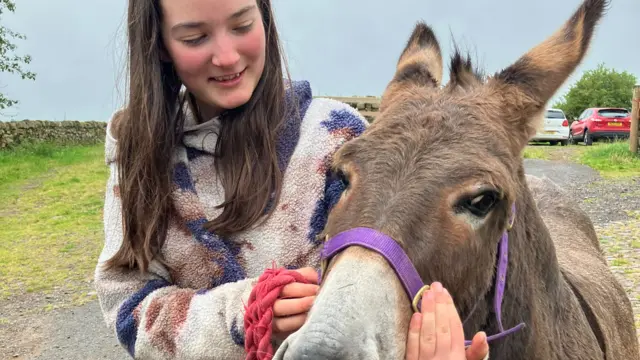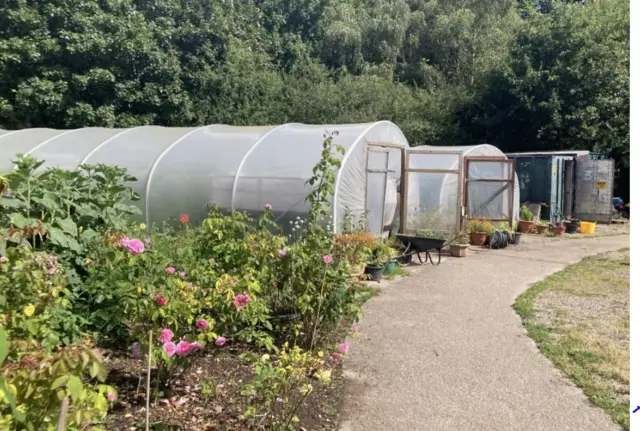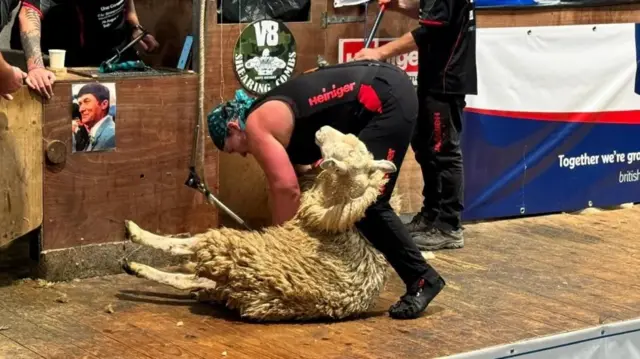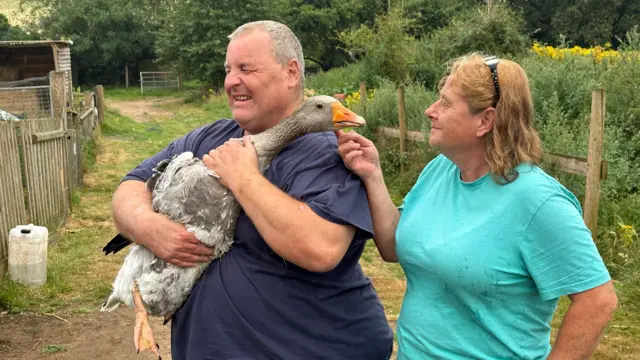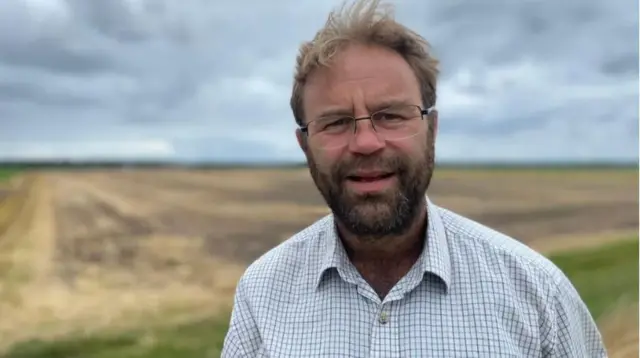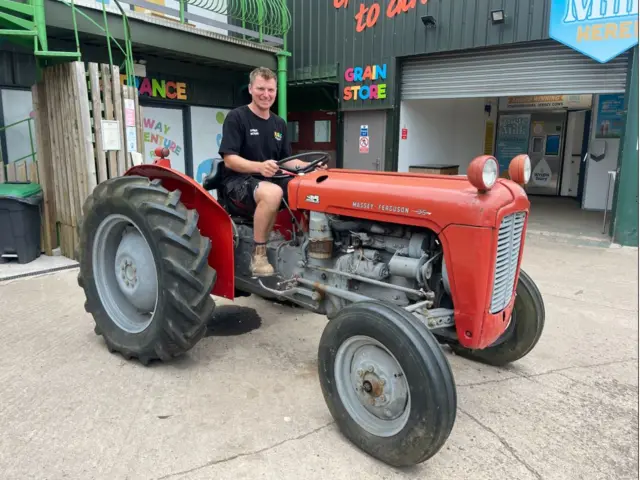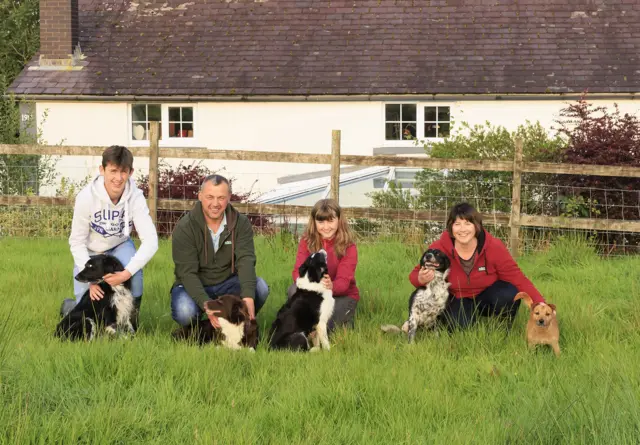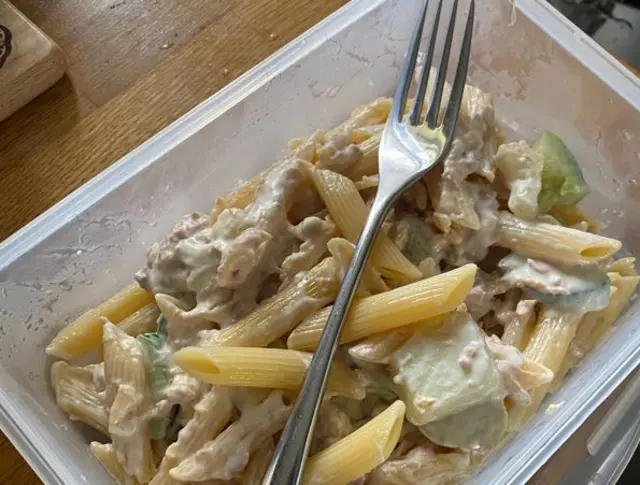Farewell from Farmwatchpublished at 20:01 BST 8 August 2024

That’s all for today.
Thanks for joining us for our Farmwatch coverage.
We've learnt about the emotional toll on farmers and the struggle to survive as climate change and flooding affects crops.
Also many farmers have spoken about the need to diversify, including building play centres and producing their own food products, such as crisps and ice cream.
We've also heard from farmers keen to educate the public on where their food comes from and trying to encourage new recruits to enter the industry.
If you want more on the subject Sean Dunderdale is hosting a special show called On The Farm across the BBC Local Radio network at 01:00 BST on Friday, or you can listen again on BBC Sounds.
